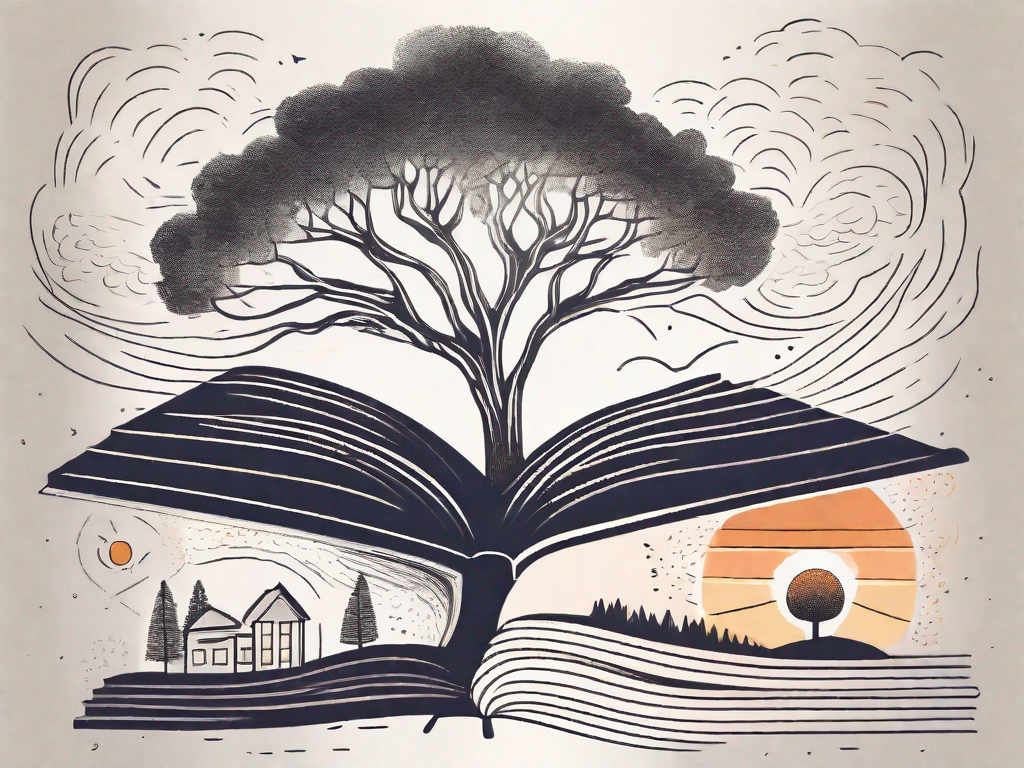The term ‘Bildungsroman’ is a German word that has been widely adopted into the English literary lexicon. It is a specific subgenre of literature that focuses on the psychological and moral growth of the protagonist from youth to adulthood, in which character change is extremely important. The term is a combination of two German words: ‘bildung’, which means education, and ‘roman’, which means novel.

The Bildungsroman genre is characterized by the growth of the protagonist. The protagonist often starts as a naive youth, and through a series of trials and experiences, grows and develops into a mature adult. The story is usually told from the protagonist’s point of view and is often autobiographical in nature. The protagonist’s journey can be physical, emotional, or spiritual, but it is always a journey of self-discovery and personal development.
Origins of the Bildungsroman Genre
The Bildungsroman genre originated in Germany in the late 18th and early 19th centuries. The first novel that is typically classified as a Bildungsroman is “The History of Agathon,” by Christoph Martin Wieland, published in 1766. However, the term was not coined until later, by the philosopher and critic Wilhelm Dilthey in 1870.
The genre quickly spread across Europe and then to America, where it became a popular form of storytelling. The Bildungsroman genre has remained popular throughout the centuries, with many contemporary authors choosing to write in this genre. It is a genre that transcends cultural and linguistic boundaries, and as such, it is found in literature from all over the world.
Key Characteristics of the Bildungsroman Genre
The Bildungsroman genre has several key characteristics that set it apart from other genres. The protagonist is usually a sensitive and intelligent individual who is looking for answers and understanding about their place in the world. The story often starts in the protagonist’s childhood and follows them into adulthood.
The protagonist’s journey is not always a smooth one. They often face trials and tribulations that test their resolve and force them to grow and change. The protagonist’s journey is a central theme of the Bildungsroman genre, and it is through this journey that the protagonist comes to understand themselves and their place in the world.
Examples of Bildungsroman Novels
There are many examples of Bildungsroman novels from a variety of different authors and time periods. Some of the most well-known include “The Catcher in the Rye” by J.D. Salinger, “To Kill a Mockingbird” by Harper Lee, and “Great Expectations” by Charles Dickens.
Each of these novels follows the journey of a young protagonist as they navigate the trials and tribulations of growing up. They each provide a unique perspective on the process of maturation and the challenges that come with it.
Impact of the Bildungsroman Genre
The Bildungsroman genre has had a significant impact on literature and storytelling. It has provided a framework for authors to explore the complexities of human growth and development. The genre has also allowed authors to delve into the psychological and moral aspects of their characters, providing a deeper understanding of human nature.
The Bildungsroman genre has also influenced other genres of literature. Many coming-of-age stories, for example, borrow elements from the Bildungsroman genre. The genre’s focus on character development and personal growth has also influenced the way characters are developed in other genres.
Modern Interpretations of the Bildungsroman Genre
Modern interpretations of the Bildungsroman genre continue to explore the themes of growth and self-discovery. However, they often do so in new and innovative ways. For example, some modern Bildungsroman novels explore these themes through the lens of cultural or societal issues, providing a fresh perspective on the genre.
Other modern interpretations of the genre play with the traditional structure of the Bildungsroman novel. For example, some authors choose to start their stories in the protagonist’s adulthood and then flash back to their youth, providing a different perspective on the protagonist’s journey.
Significance of the Bildungsroman Genre in Literary Studies
The Bildungsroman genre is significant in literary studies because it provides a framework for analyzing character development and personal growth. It allows scholars to explore the psychological and moral aspects of characters, providing a deeper understanding of human nature.
The genre is also significant because it transcends cultural and linguistic boundaries. As such, it provides a universal framework for understanding human growth and development. This makes it a valuable tool for comparative literature studies.
Conclusion
In conclusion, the Bildungsroman genre is a significant and influential genre in literature. It provides a framework for authors to explore the complexities of human growth and development, and it has influenced other genres of literature. The genre continues to be popular today, with many contemporary authors choosing to write in this genre.
Whether you are a reader seeking to understand the intricacies of character development, or a writer looking to explore the depths of human nature, the Bildungsroman genre offers a rich and rewarding literary experience.
- Alternate Reality: Book Genre Explained – Ultimate Guide - November 6, 2023
- Supernatural Suspense: Book Genre Explained – Ultimate Guide - November 6, 2023
- Post-Apocalyptic Romance: Book Genre Explained - November 6, 2023